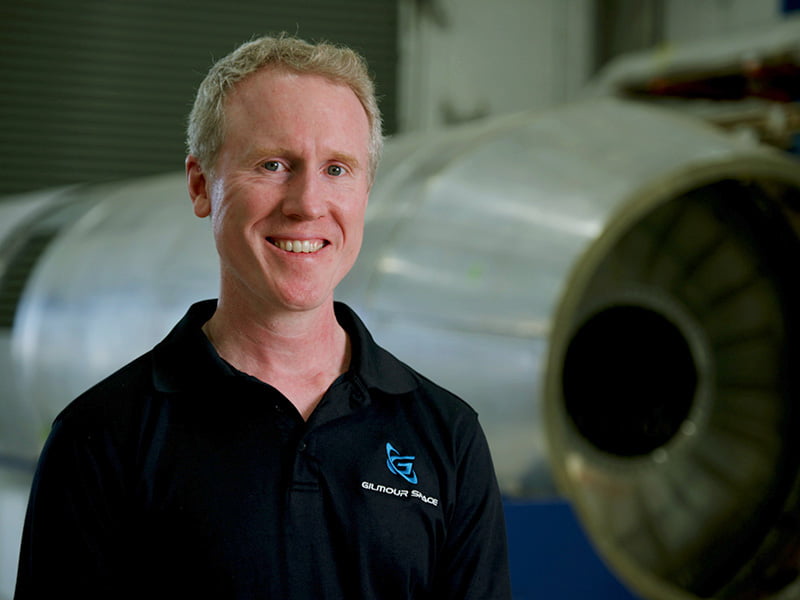Australia needs its own sovereign primes in the space sector to boost the nation’s manufacturing capability and build resilience into the local economy, Gilmour Space Technologies chief executive Adam Gilmour says.
Mr Gilmour put forward a policy paper in The Innovation Papers, to be launched in Canberra on Thursday, to shift towards Australian-owned and operated primes – companies with overall program responsibility for delivering a major project to a customer.
These companies typically subcontract with local companies and source from local suppliers, with significant spillover effects.
“Now is the right time for the Australian-government to focus more energy and spending on the Australian-owned companies that will become sovereign primes. It’s time to change the government’s posture on risk, which still sees Australian products and companies as risky and incapable of developing more than small pats for foreign primes,” Mr Gilmour said in The Innovation Papers.
“Space and defence technologies take time to develop and mature. The longer the government takes in making the first bold decision, the longer it will take to grow the sovereign capabilities and Australian primes we need to ensure a more resilient nation. Let us start here today.”

Australian primes would create significant spillover effects across the economy, he said.
“These companies are sourcing from local suppliers, hiring and upskilling local talent and working with partners to develop meaningful capability in-country. They are increasing the depth and resilience of local supply chains, strengthening the economy, creating and keeping new IP and profits in Australia and protecting our nation from adverse shocks or events,” Mr Gilmour said.
Primes in the space sector are currently mostly large foreign multinationals with Australian branches or subsidiaries, and are often incentivised to buy components from their home countries.
Having more local primes would have assisted Gilmour Space Technologies in developing its rockets and satellites, which require thousands of parts, some of which are still delayed by more than a year.
“A stronger onshore or local supply chain would have clearly strengthened and accelerated our overall development and manufacturing efforts in Australia,” Mr Gilmour said.
In the paper, Mr Gilmour uses an example of the federal government buying a launch vehicle made in Australia for $10 million. At least half of this price will go towards employee salaries, on which the government would collect 25 per cent or $1.25 million in income tax.
State governments would also get $250,000 in payroll tax, and the GST on the sale would be $1 million.
In total, this would add up to $3 million in total taxes paid to state and federal governments on the sale of the $10 million launch vehicle.
“Beyond taxes, every dollar the government spends on an Australian-made product will multiply through the economy many times more than for a foreign product – like through the supply chain, and from employees here spending their salaries on Australian goods and services,” he said.
“Australian primes are driven to build capability through a local supply chain.”
Gilmour Space has connections with over 300 Australian suppliers for its Eris launch vehicle and G-class satellite platform, including for the fuel and oxidiser tanks, electric components, fuel and gases.
“Besides pouring tens of millions of dollars into our supply chain, our development spending and brand name have allowed suppliers to enter the space industry with new products and services that could be sold or exported to other Australian and international space companies,” Mr Gilmour said.
“When our Eris rocket launches to orbit, 300 Australian companies will have space-qualified their products for the international market.”
Adam Gilmour will present his ideas at the special Innovation Papers [Live] forum at The National Gallery in Canberra on the morning of Thursday August 4. You can reserve your seat here.







